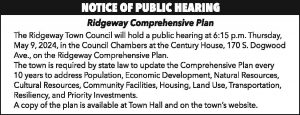BLYTHEWOOD – The Blythewood Planning Commission recommended that Town Council not adopt a zoning ordinance that would have deleted the R-5, R-8 and R-12 zoning districts from the Town’s zoning map and leave hundreds of parcels of land to be rezoned. Instead, Commissioners recommended downzoning 30 selected parcels from either R-5 or R-12 zoning districts to D-1, with the exception of 150.19 acres of The Abney Hills Estate after representatives of the builder in that development objected.
“We’re suggesting an alternative that will leave the text alone, leave those districts in place and keep the development rights in tact for those projects that are already developed on top of those districts but downzone select parcels that have either the R5, R8, or R12 zoning,” Planning Consultant Micheal Criss told the Commission. Chairman Bryan Franklin compared the alternative recommendation to using a “scalpel” approach instead of the “sledgehammer” approach.
Representatives from Essex Homes, the owners of the Abney Hills Estate, attorney Steven Harvey and planner Frank Berry were in attendance to argue that the Abney Hills Estate would be negatively affected if it were downzoned.
“Changing this zoning on us in mid-stream is going to have a big impact not just on us as the landowners but also on our residents in the neighborhood. They will see increased association dues due to the lost number of lots that could have potentially been there,” Berry said.
“It was a plan there and we looked at that plan and made the numbers work. We in this industry have to rely upon you doing what you say you’re going to do, it’s the only way we have for projecting our needs in the future and investing our dollars in areas. There has to be a level of certainty there and that’s really all I wanted to say,” Harvey added.
Builder Mike Shelley began developing Abney Hills in 2008. After his death, the property was transferred back to the bank, and the bank in turn sold lots to Hurricane Homes. When looking to offload the property to a developer the bank reached out to Essex Homes in 2013.
Franklin saw downzoning the Abney Hills Estate as an undue burden on homeowners in the neighborhood who could potentially see their homeowner’s association dues increase by as much as three times, due to smaller lot sizes.
“The issue I have is the existing homeowners, like in Oakhurst. So, if you live in Abney Hills Phase 1 right now, and you’re paying a regime fee or homeowner’s association dues, based on so much per year or per month, all of a sudden that’s going to triple in cost,” Franklin said.
Commissioner Cynthia Shull disagreed with that assessment. While acknowledging that she would be out-voted, Shull pointed out that the developers “have had four years to do something.” Shull leaned towards rezoning all 31 parcels of land listed by the Commission including the 150.19 acres of the Abney Hills Estate.
Commissioner Donald Brock worried that changing the zoning rights to Abney Hills Estate would not only be in bad taste, but could open the Commission up to potential legal ramifications.
“It seems to me that rocking the boat on that particular development would be a little bit of a bad taste. Probably would get us in a little bit of legal trouble, and I don’t really feel like fighting a lawsuit from a volunteer Commission position. So I’m for exempting your property from the downzoning with the understanding that you will build in good faith,” Brock said.
Criss said neighborhoods such as Oakhurst and Cambridge Point, that are in the R-8 zoned districts were excluded from the list of the 31 locations to be downzoned, because they have already been constructed or have gotten approval to begin the process.
“We’re not proposing that the zoning be changed, downzoned to a lower density, because they’re either already built like Oakhurst, like Dawson’s Creek and Dawson Pond or they’ve been through the approval process like Cambridge Point so don’t pull that zoning rug out from under them,” Criss said.
In, addition R-12 zoned parcels that did have at least 20,000 square feet were left off of the list because downzoning them to a D-1 zoning classification would create a non-conforming lot or structure. Non-conforming lots can lead to a number of headaches, particularly in the private sector, including issues with titles, financing, insurance and marketability.
Of the 30 lots listed, excluding Abney Hills, only two R-5 zoned lots were included. (what were the rest?) This led Donald Brock to propose that the two current R-5 zoned parcels be rezoned, and then remove just the R-5 classification.
Criss said this was possible with a new ordinance, but pointed out that removing the R-5 zoning from the text would remove an important tool in limiting commercial development from encroaching into the Town Center.
“R5 is the only residential district that allows multi-family, maybe you don’t want multi-family but suppose at some point in the future the commission and/or the council decides that we have enough apartments there already in the Town Center District,” Criss said. “We got a good project just outside but we don’t want to allow a lot of commercial encroachment too far beyond the town center, that R5 is a surgical district, it says ok you can do the multi-family but you can’t do all kinds of commercial on it.”
The motion to recommend downsizing the selected 30 parcels to D-1, from either their R-5 or R-12 designation with the exception of the Abney Hills Estate, passed. Donald Brock abstained from voting and Cynthia Shull voted to downsize all 31 parcels.










